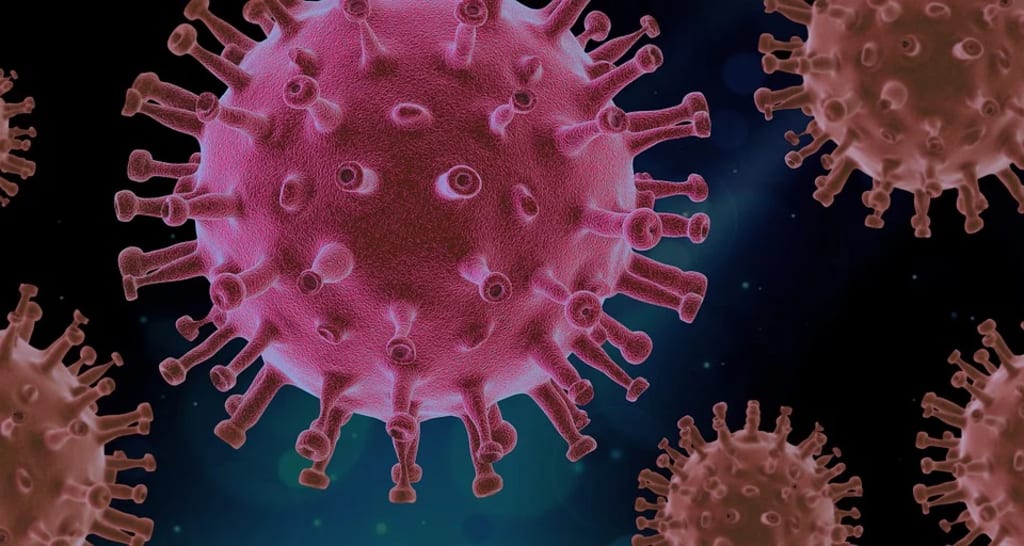Counting the Lives Saved by using Lockdown — and Lost to Slow Action
Social distancing measures averted hundreds of thousands of COVID-19–related deaths around the world, by a handful of studies, however, it’s challenging to quantify the outcomes with certainty.

On May 20, ailment modelers at Columbia University posted a preprint that concluded the US ought to have averted 36,000 of the 65,300 deaths that the USA had suffered as a result of COVID-19 by using May three if states had instituted social distancing measures a week earlier. In early June, Imperial College London epidemiologist Neil Ferguson, one of the UK government’s key advisers in the early levels of the pandemic, got here to a comparable conclusion about the UK. In proof he introduced to a parliamentary committee inquiry, Ferguson stated that, if the use of a had delivered restrictions on motion and socializing a week quicker than it did, Britain’s reputable dying toll of 40,000 should have been halved.
Putting a greater wonderful spin on the query of how social distancing measures have affected the pandemic’s outcomes, Ferguson and different researchers at Imperial College London posted a mannequin in Nature round the identical time estimating that greater than three million deaths had been prevented in the UK as a result of the insurance policies that had been put in place.
These and different research from latest months goal to apprehend how properly a range of social-distancing measures have curbed infections, and by way of extension saved lives. It’s a massive venture to unravel and reliably apprehend all the elements at play, however, professionals say the lookup ought to assist inform future policies.
“It’s now not simply about searching retrospectively,” Jeffrey Shaman, a facts scientist at Columbia University who posted the preprint on US deaths, tells The Scientist. “All the locations that have managed to get it underneath manipulate to a positive extent are nonetheless at threat of having a rebound and a flare-up. And if they don’t reply to it due to the fact they can’t inspire the political and public will too, in reality, reinstitute manage measures, then we’re going to repeat the equal mistakes.”
Diving into the data
Shaman and his group used a laptop mannequin and facts on how humans moved round to work out how decreased contact between human beings ought to explain sickness developments after the US delivered social distancing measures in mid-March. Then, the researchers regarded at what would have befallen if the identical measures had been added a week earlier, and determined that greater than 1/2 of whole infections and deaths up to May three would have been prevented. Starting the measures on March 1 would have avoided eighty-three percentage of the nation’s deaths all through that period, under the model. Shaman says he is ready to put up for booklet in a peer-reviewed journal till they replace the find out about with more-recent data.
“I thinking they had fairly credible facts in phrases of attempting to argue that the lockdowns had averted infections,” says Daniel Sutter, an economist at Troy University. “They have been coaching or calibrating that mannequin the use of some mobile phone cellphone facts and foot site visitors records and correlating that with lockdowns.”
Sébastien Annan-Phan, an economist at the University of California, Berkeley, undertook a comparable analysis, searching at the increased price of case numbers earlier than and after a range of lockdown measures have been delivered in China, South Korea, Italy, Iran, France, and the US. Because these nations instituted one of a kind combos of social distancing measures, the group used to be capable to estimate how nicely every motion slowed disorder spread. The most positive measure, they found, used to be getting human beings now not to tour to work, whilst faculty closures had particularly little effect. “Every user is distinctive and they put in force exceptional policies, however, we can nonetheless tease out a couple of things,” says Annan-Phan.
In total, his team estimated that mixed interventions avoided or delayed about sixty-two million established instances in the six nations studied, or about 530 million whole infections. The outcomes have been posted in Nature in June alongside a find out about from a team at Imperial College London, which had in contrast COVID-19 instances mentioned in various European nations beneath lockdown with the worst-case state of affairs expected for every one of these international locations via a laptop mannequin in which no such measures had been taken. According to that analysis, which assumed that the consequences of social distancing measures had been identified from the U.S.A. to the country, some 3.1 million deaths had been avoided.
It’s tough to argue towards the vast conclusion that altering people’s conduct was once beneficial, says Andrew Gelman, a statistician at Columbia University. “If human beings hadn’t modified their behavior, then it would have been disastrous.”
Lockdown insurance policies versus non-public choices to isolate
Like all hypothetical scenarios, it’s not possible to understand how activities would have performed out if distinct choices had been made. And attributing adjustments in people’s conduct to professional lockdown insurance policies all through the pandemic is in particular difficult, says Gelman. “Ultimately, we can’t say what would have come about barring it, due to the fact the timing of lockdown measures correlates with when humans would have long gone into self-isolation anyway.” Indeed, by a current learn about cellular smartphone statistics in the US in, many human beings commenced to undertaking out much less an exact one to 4 weeks earlier than they have been formally requested to.
A document from German researchers on records from Sweden, the U.S.A. that did now not introduce the identical strict restrictions as others in Europe, appeared to aid that idea. It discovered that, in contrast with information from different countries, Sweden’s effects have been no worse. “A lockdown would no longer have helped in phrases of limiting COVID-19 infections or deaths in Sweden,” they learn about at first concluded. But Gernot Muller, an economist at the University of Tubingen who labored on that report, now says up to date information exhibit that unique conclusion was once flawed. Many Swedes took voluntary moves in the first few weeks, he says, and this masked the advantages that a lockdown would have had. But after the first month, the demise charge began to rise. “It turns out that we do now see a lockdown effect,” Muller says of his group’s new, nonetheless unpublished analyses. “So lockdowns do work and we can connect a wide variety to that: some forty percent or 50 percent fewer deaths.”
Some critics query the assumption that such deaths have been prevented—rather than delayed. While it can show up a semantic point, the difference between stopping and delaying contamination is a vital one when coverage makers investigate the fees and advantages of lockdown measures, Sutter says. “I suppose it’s a little deceptive to maintain announcing these lockdowns have avoided death. They’ve simply avoided instances from going on so far,” he says. “There’s nevertheless the underlying vulnerability out there. People are nevertheless inclined to get the virus and get ill at a later date.”
Shaman notes, however, that it’s honestly a race in opposition to the clock. It’s about “buying your self and your populace integral time to no longer be contaminated whilst we attempt to get our act collectively to produce a tremendous vaccine or therapeutic.”






Comments
There are no comments for this story
Be the first to respond and start the conversation.